Feature
How Dystopian Novels Are Written
Thanks to a young adult boom and television and film adaptations, the dystopian genre is riding a comeback. Authors who write dystopian fiction have a new audience eager for stories that play on modern anxieties and inspire change. But as the subjects of dystopian fiction shift from nuclear weapons and totalitarian states to climate disasters and gender equality, it is worth examining the mechanisms behind the dystopian genre. Drawing on classic dystopian novels and my own writing experience, here is a primer on how dystopian fiction is written.
A Brief History Of Dystopia
In 1516, the English lawyer and philosopher Thomas More published a short fictional satire titled Utopia. In it, More imagined a seemingly ideal society on a made-up island whose name derived from the ancient Greek “ou” (οὐ), meaning “not,” and “topos” (τόπος), meaning “place.” This 16th-century book launched a genre centred on the idea of a perfect “not a place,” “nowhere” or “utopia.” The word later adopted the meaning of “eutopia,” or “good place.”
Utopian literature continued into the 19th century, with titles like Jonathan Swift’s Gulliver’s Travels (1726) and Samuel Butler’s Erewhon (1872). But in 1887, Anna Bowman Dodd pushed back against these idealistic nowheres with her novella The Republic Of The Future; Or, Socialism A Reality. In this response to the swell of utopian fiction, Dodd imagined an American socialist republic in the year 2050. There, people travelled by balloons and pneumatic tubes, religion was nonexistent, gender equality flourished, all labour was automated and people consumed nutrition pills instead of food. From this setting, she launched a literary critique against the conformity, tedium and mediocrity she imagined would result from the socialist and technologically advanced societies of utopian fiction. The dystopian genre had begun.
If a utopia is a good place, a dystopia is a “not-good place.” Utopian fiction portrays a society in which humans have managed to set everything right. In contrast, dystopian societies are oppressive or barely even societies at all. They depict worlds of suffering and injustice, often as a result of totalitarian governments or apocalyptic disasters. But as Dodd demonstrated, dystopian societies demand a bit of explanation. No one sets out to create a mediocre, conformist, oppressive or disastrous society. These negative side effects grow out of various efforts to improve society, such as, in Dodd’s vision, socialist politics and technological progress.
Mastering The Genre
The indication (whether explicit or implicit) of how the society in question came into existence provides what I believe to be the most interesting element of a well-written dystopian story. This explanation proves especially effective (as I have written previously) when it involves the inversion of an apparently utopian society. And the first half of the 20th century was rife with indications of a world gone wrong. Despite technological and social progress that included the Second Industrial Revolution and spread of democracy and equal rights, 20th-century humans suffered through two world wars, lived in fear of a weapon that could destroy most of the planet and faced the spread of totalitarian governments, most notably in Germany and Russia. As a result, the rise of dystopian fiction was almost inevitable.
In my opinion, the genre reached its peak with the 1949 publication of George Orwell’s novel 1984. Facing the shadow of the recently defeated German National Socialists and the rise of Soviet communism, Orwell imagined the worst excesses of state power in this book. As an adherent of socialism, he had the intellectual courage to examine the dark side of his beliefs, seize on the excesses of this system and extend them into ever-worsening consequences.
From the concept of social ownership, Orwell moved to government enforcement of this collective ideal, then to consolidation of power in the state, and finally to the mechanisms which allow a state to maintain that control, namely surveillance, the doctoring of language and truth, psychological manipulation and detention and interrogation without the rule of law. “Big Brother,” “Thought Police,” “newspeak” and “thoughtcrime” were not the starting point for the world of 1984; they were outgrowths of Orwell’s exploration into the worst aspects of societies that call themselves socialist.* And this, for me, is the mark of great dystopian fiction: the ability of an author to take an idea to its absolute, most distressing limit.
My Inspiration
My experience as a dystopian thinker and author began when I read H.G. Wells’ novel The Time Machine as a university student. I had previously consumed other great works in the genre. 1984 and Lois Lowry’s The Giver were already two of my favourite books. But it was Wells’ extrapolation of the class divide in Victorian society that really sparked my curiosity.
Wells’ childlike, blissfully ignorant Eloi are emblematic of the time and circumstances in which he lived. But this imagined future race also offers a curious portrayal of human devolution. It is impossible to read The Time Machine without wondering how the intellect of men like the time traveller diminished over hundreds of thousands of years to the gross insipidity of the Eloi.
I read The Time Machine on the cusp of a burst of technological progress. Apple would release the first model of its iPhone one year later. Automobile companies were already advertising self-parking cars; the possibility of completely autonomous vehicles was not far off. Netflix was beginning its transition from a mail-order DVD renter to the leader in streaming content. And I was surrounded by peers who were both extremely intelligent and motivated but also willing to lapse into the occasional passivity of comfort, entertainment and ease.
My Dystopian Journey
I didn’t necessarily set out to write dystopian fiction, but I recognised a paradox in what I was seeing. Like Wells’ time traveller, massive corporations and my fellow university students, humans are constantly innovating and creating. Yet much of that innovation aims to make our lives easier and more comfortable, thus reducing the need for future innovation. By pushing this dichotomy to its limits, I could imagine a path by which all scientific and technological progress would ultimately lead humanity to a state in which such progress becomes obsolete. These future humans would have no need for further innovation because all the work had been done for them.
However, when the need for ingenuity, creativity and productivity disappears, these qualities also fall by the wayside. In my mind, the result would be a seemingly utopian society, yet one in which humans lacked an essential element of what makes us human in the first place.
The question then became how humankind could advance step-by-step to this world of obsolete ingenuity. I began to collect articles on emerging developments in space travel and the evolution of race and physical appearance. I scoured the Internet for new discoveries in medicine, fuel and transportation, and extrapolated trends in climate change and population growth.
Through my research and in outlines and a hand-drawn timeline, I then plotted the steps by which humans would make their lives easier. Firstly, cure cancer, AIDS and a host of other terrible diseases. Secondly, eliminate world hunger. Then, slow climate change and explore the farthest reaches of the galaxy. And finally, when a disease-free, well-fed population exceeded the Earth’s carrying capacity and fell into war and environmental destruction, find a new planet on which humanity could begin anew, where our accumulated progress could mark the end of malady and strife, but also, the end of progress.
The result for my dystopian story was an automated colony in which machines fulfilled the colonists’ every need and these future humans no longer had to think or care for themselves. All I needed was a trigger to set the story in motion. So I made the machines stop. I made the colonists once again face deprivation and difficulty. I made them relearn how to think for themselves.
And that’s the basic setup for my dystopian novel Our Dried Voices. I took the concept of progress for the sake of comfort and ease and extended that idea to its extreme to create a society in which machines made everything so easy for humans that they no longer needed to be creative or productive. I then worked through the historical steps that would allow such a society to come about. Finally, I imagined a conflict in the breakdown of the machines that would upset the basis of this society and set humans back on the path of thinking for themselves and relying on innovation to solve their problems.
A Recipe To Write Dystopian Fiction
From Dodd to Wells to Orwell and beyond, the dystopian genre has come a long way in the past century. Yet even as dystopian themes evolve, authors who write dystopian fiction follow the same basic process. The best dystopian stories emerge when writers explore ideas about the state of society and how it should be maintained and extend or twist those ideas to terrifying ends. That approach is the one Dodd used to launch the genre, the one Orwell used to perfect it, and the one I used in writing my own dystopian novel. Take an idea, work it over to create a new world, then figure out how to get from our world to that one. A simple recipe for how to write dystopian fiction that has served authors well for decades.
*-Fellow dystopian author Chris Beckett (Genesis) recommends dystopian fans read The Space Merchants by Frederik Pohl and Cyril M. Kornbluth as the capitalism-gone-wrong counterpoint to 1984. Having heeded this recommendation, I whole-heartedly agree.
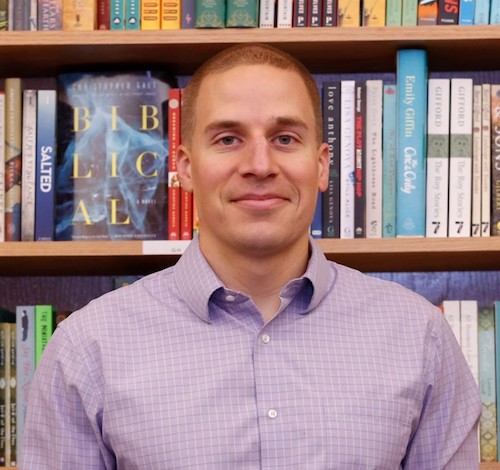
Greg Hickey is the author of the dystopian fiction novel Our Dried Voices, a finalist for Foreword Reviews’ INDIES Science Fiction Book of the Year Award. The book depicts a future colony where humans live without disease or hunger, where every want is satisfied automatically, and there is no need for labour, struggle or thought. Interested readers can start Our Dried Voices for free on Greg’s website.
Read his articles here.

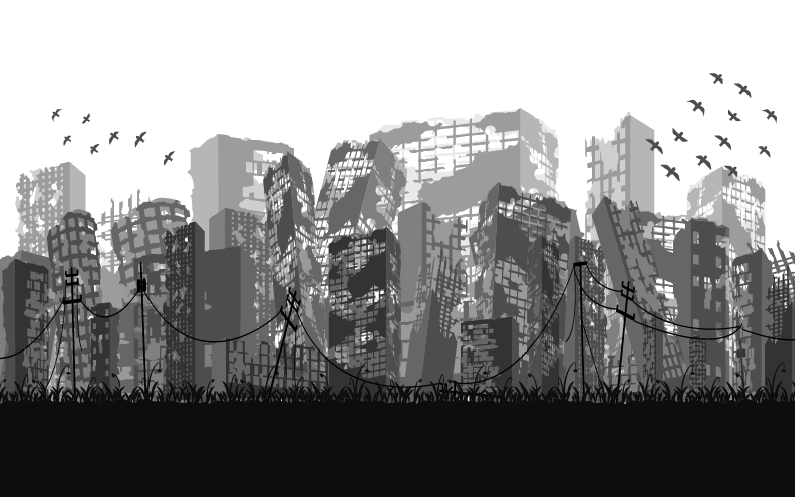
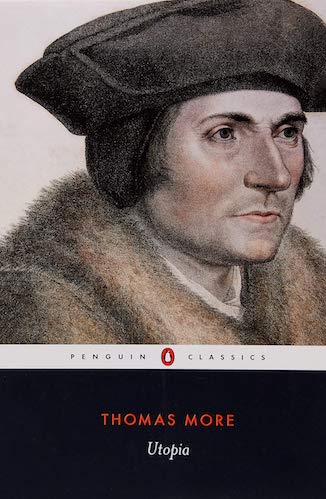
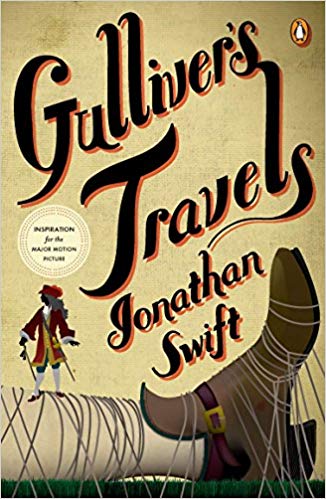
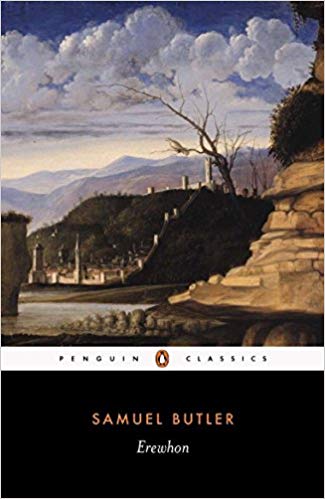



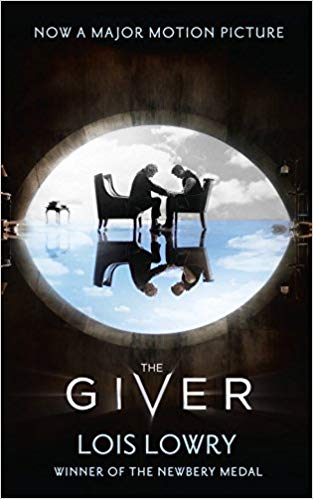
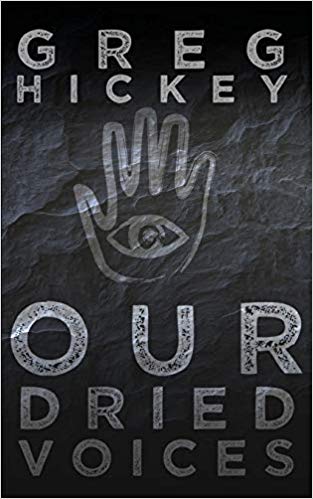
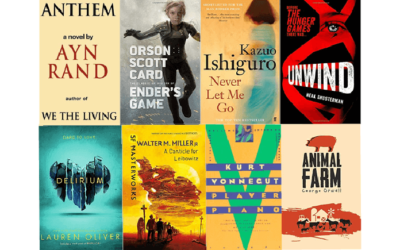
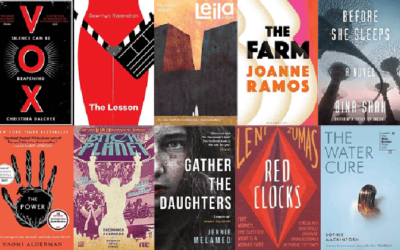
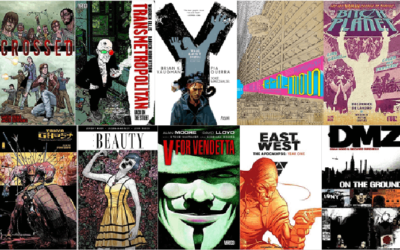
Loved this! Easy to understand but includes all of the essential elements.